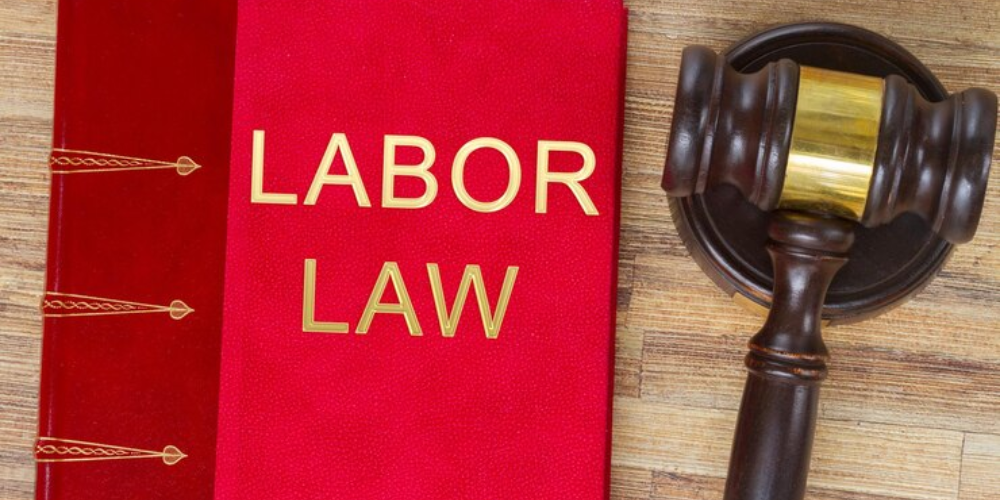
Understanding the Legal Landscape: Labor and Employment Regulations

The landscape of the workplace is evolving rapidly, outpacing the capacity of employment laws to adapt. In this era, employees find themselves endowed with unprecedented rights, yet the intricacies of these rights often remain obscured by corporate opacity. Understanding these legal safeguards is crucial for every worker, empowering them to navigate the complexities of their employment with confidence and awareness.
What Are Labor and Employment Laws?
Labor laws deal with issues like unions, strikes, and collective bargaining. Employment laws cover things like wages, hiring, firing, and discrimination. There’s some overlap between the two, but they focus on different aspects of the workplace.
Federal laws like the Fair Labor Standards Act set basic rules that apply nationwide. But states and cities often have additional protections, so you need to know both federal and local laws. When it comes to your rights as a worker, more is usually better!
The Most Important Employment Laws
Wage and Hour Laws

Freepik | andranik.h90 | Federal minimum wage: $7.25/hour, but some states and cities mandate higher rates, reaching up to $15/hour.
The federal minimum wage is currently $7.25 per hour, but many states and cities require more – up to $15 per hour. Employers have to pay at least the highest minimum wage that applies.
Most employees must also get overtime pay – 1.5 times their regular rate – for any hours over 40 per week. Some workers are exempt from overtime, like managers and professionals. But those exemptions are narrow, so don’t assume you don’t qualify for overtime if you work extra hours. Track all your time to make sure you’re paid fairly.
Anti-Discrimination Laws
It’s illegal for employers to discriminate against employees based on protected characteristics like race, gender, age, disability, or religion. This includes decisions about hiring, firing, promotions, or compensation.
If you believe you’ve been discriminated against, file a complaint with the Equal Employment Opportunity Commission (EEOC). They’ll investigate the claim and can get you reinstated or awarded back pay if your rights were violated.
Workplace Safety and Health Laws
You have a right to a safe workplace. If conditions are dangerous, you can file a complaint with the Occupational Safety and Health Administration (OSHA). They’ll inspect and require any needed changes.
It’s illegal for employers to retaliate against you for reporting safety issues. You can’t be punished for asserting your health and safety rights on the job.
Key Employee Rights
Organizing a Union
The National Labor Relations Act gives employees the right to join unions and collectively bargain for better wages, benefits, and working conditions. If a majority of workers at your company support forming a union, the employer has to recognize it and negotiate in good faith.
They can’t threaten, fire, or discriminate against you for your union support. If they do, file a complaint with the National Labor Relations Board (NLRB).
Taking Leave
Need time off for health reasons or a new baby? The Family and Medical Leave Act (FMLA) provides up to 12 weeks of unpaid leave for medical or family needs. To qualify, you must have worked at a company with 50+ employees for at least a year.
Many states also have paid family leave laws that provide income while you take time to care for a new or sick child or relative. Check if paid leave benefits are available where you live.
Reasonable Accommodations

Freepik | If you have a disability, your employer must give you reasonable accommodations.
If you have a disability, your employer is required to provide reasonable accommodations under the Americans with Disabilities Act (ADA) – like a modified schedule, equipment adjustments, or a reassigned workspace. Request the specific accommodations you need in writing. Your employer can’t penalize you for asking.
State and Local Protections
In addition to federal laws, check the labor department website for your state and city. Many have additional protections like:
- Higher minimum wages
- Paid sick and family leave
- Scheduling and pay notice requirements
- Protections for political activity and off-work marijuana use
Know your rights under federal, state, and local laws so you can advocate for fair treatment. Don’t assume that the legal minimum is all you deserve as a worker.
Who Enforces Employment Laws?
Multiple government agencies oversee workplace laws at the federal and state levels. Here are some of the key ones:
- The Department of Labor’s Wage and Hour Division handles minimum wage, overtime, and other compensation issues.
- The EEOC investigates discrimination complaints under Title VII and other laws.
- OSHA protects health and safety on the job under the Occupational Safety and Health Act.
- The National Labor Relations Board enforces the NLRA, including the right to organize.
Don’t hesitate to contact the appropriate agency if you believe your workplace rights have been violated. They have authority to get you the pay, benefits, leave, or accommodations you deserve.
Trends Reshaping Workplace Rights
With more flexibility about when and where work happens, employment laws are adapting to new realities. Here are some evolving issues:
Gig Workers
Rideshare drivers, freelancers, and independent contractors don’t fit the traditional model of full-time employment. But they still deserve basic protections. New policies are emerging to guarantee gig workers minimum earnings, paid leave, unemployment benefits, and the right to organize. Expect more changes as on-demand work becomes more common.
Cannabis Use
Marijuana is now legal in many states, but it remains illegal federally. Some states protect workers’ off-hours cannabis use, while others don’t. Expect court battles over bans on employees’ legal marijuana use.
LGBTQ Rights
A 2020 Supreme Court ruling confirmed that Title VII’s ban on sex discrimination includes bias based on sexual orientation and gender identity. This makes it clear that LGBTQ employees are protected under federal law.
Flexible and Remote Work

Freepik | More workers now have flexible schedules or work full-time from home than ever before.
More employees than ever have flexible schedules or work from home full-time. Expect new laws to protect remote workers’ rights and expand access to flexible arrangements.
Know Your Worth
Don’t assume your employer will voluntarily pay you more or treat you better than the law requires. Be familiar with your rights under federal, state, and local employment laws so you can stand up for yourself.
If something seems unfair, speak up and assert your rights. File a complaint with the appropriate agency if needed. You have more protections than you probably realize – but the law only matters if you exercise your rights.
Knowledge is power, especially when it comes to your employment. Labor and employment rules exist to ensure safe, fair, and fair workplaces. Understand your rights, find your voice, and don’t settle for less than you deserve. The workplace may be changing, but your fundamental worth and dignity as an employee remains.
More in Legal Advice
-
New York to Mail Out One-Time Inflation Rebates. Here’s the Eligibility List
New York is preparing to send out its first-ever inflation refund checks, providing financial relief to millions of residents as prices...
October 3, 2025 -
Here’s What Artists Should Know About Copyright & Its Implications
Copyright protects your art from the moment you create it. The second your drawing, painting, sculpture, or photo is fixed in...
September 27, 2025 -
Everything to Know About Vogue America’s New Editor, Chloe Malle
Chloe Malle just stepped into one of the most powerful roles in fashion media: Head of Editorial Content at Vogue America....
September 21, 2025 -
Did Barron Trump Apply to Harvard? Clearing Up the Rumors
Speculation often swirls around public figures, and in recent months Barron Trump’s college choices became part of the conversation. Questions surfaced...
September 20, 2025 -
Can You Be Naked in Texas?
The Texas public nudity law isn’t as simple as “no clothes, you are in trouble.” It all comes down to intent,...
September 13, 2025 -
Why AI Is Now a Necessity, Not a Choice, for Law Firms
Artificial intelligence is no longer a futuristic concept for the legal industry. It is steadily changing how law firms operate, not...
September 13, 2025 -
Waikiki Lifeguard Cleared in Confrontation With Notorious Criminal
On a hot day at Kuhio Beach, veteran lifeguard Christopher Kekaulike Kam stepped in when things got out of control. A...
August 13, 2025 -
Gawking at the Coldplay ‘Kiss Cam’ Affair Is Voyeurism at Its Worst!
Coldplay concerts are meant to be joyful. But during a recent show, a playful kiss cam bit turned into a public...
August 6, 2025 -
Essential Safety and Success Resources for Trans Journalists
Trans journalists go through tough spaces every day. In a field that often tests your limits, knowing where to turn for...
July 30, 2025














